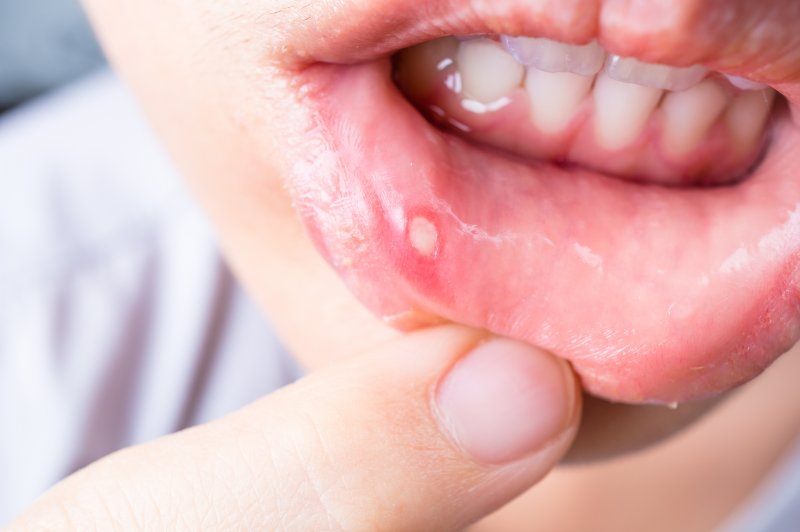
It’s easy to think that mouth sores are all the same. Unfortunately, however, there are multiple types — and some are more common than others. As such, the best way to treat them lies in the ability to identify their differences.
Take canker sores and cold sores, for example. Here’s a closer look at their respective traits and causes, as well as the ideal ways to treat them.
What are Canker Sores?
Canker sores are small, white, oval swellings surrounded by redness that occur inside your mouth, usually around the gums, inner cheeks, tongue, or soft palate. Before they appear, you may notice a burning or tingling feeling in the mouth.
Causes of Canker Sores
Although scientists still don’t know what exactly causes canker sores, they do know that they aren’t contagious. That means you can’t get them by sharing utensils, kissing, etc. Some possible triggers include:
- Mouth injury.
- Deficiencies in vitamin B-12, iron, or folate.
- Toothpaste or mouthwashes with sodium lauryl sulfate.
- Hormone fluctuations.
Canker Sore Treatment
Unfortunately, because so little is known about the exact cause of canker sores, preventing them is difficult. Minor canker sores typically don’t need treatment and will disappear on their own within a couple of weeks. In the case of larger sores, over-the-counter creams and gels that contain benzocaine or hydrogen peroxide can help. If underlying health problems are causing them, your doctor or dentist can work with you on treating those as well.
What are Cold Sores?
Cold sores are tiny, fluid-filled blisters that develop on and around the lips. They often group in patches and can eventually form scabs that last several days. They usually heal in two-to-three weeks without leaving a scar.
Causes of Cold Sores
Cold sores are caused by strains of the herpes virus (HSV), usually HSV-1. This virus is contagious through close contact like kissing and sharing utensils, etc. Unfortunately, once you’ve had a herpes infection, the virus lies dormant in your skin’s nerve cells and may emerge later as a cold sore.
Cold Sore Treatment
Cold sores are best prevented by finding ways to avoid contracting the herpes virus. They usually fade on their own, but some topical medicines including over-the-counter creams and prescription antiviral drugs can ease symptoms and speed up healing.
Remember, while both types of sores are painful and frustrating, canker and cold sores aren’t the same. Treating and preventing them — as well as the other types of mouth sores — requires knowing their differences.
About Dr. Jafari
Dr. Reza Jafari proudly leads the talented and caring team at Bell Road Dental Care of Phoenix. He earned his bachelor’s degree in biochemistry at Arizona State University and graduated with honors from the Boston University School of Dental Medicine in 2003. He returned to his native Arizona in 2005, where he has been helping protect and preserve smiles ever since. To schedule a preventive checkup and cleaning, or to be seen for any concerning mouth changes such as unexplained oral sores, visit our website or call 602-404-3483 today.

